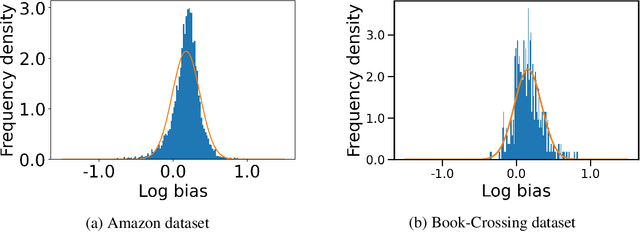Exploring and Mitigating Gender Bias in Recommender Systems with Explicit Feedback
Paper and Code
Dec 05, 2021



Recommender systems are indispensable because they influence our day-to-day behavior and decisions by giving us personalized suggestions. Services like Kindle, Youtube, and Netflix depend heavily on the performance of their recommender systems to ensure that their users have a good experience and to increase revenues. Despite their popularity, it has been shown that recommender systems reproduce and amplify the bias present in the real world. The resulting feedback creates a self-perpetuating loop that deteriorates the user experience and results in homogenizing recommendations over time. Further, biased recommendations can also reinforce stereotypes based on gender or ethnicity, thus reinforcing the filter bubbles that we live in. In this paper, we address the problem of gender bias in recommender systems with explicit feedback. We propose a model to quantify the gender bias present in book rating datasets and in the recommendations produced by the recommender systems. Our main contribution is to provide a principled approach to mitigate the bias being produced in the recommendations. We theoretically show that the proposed approach provides unbiased recommendations despite biased data. Through empirical evaluation on publicly available book rating datasets, we further show that the proposed model can significantly reduce bias without significant impact on accuracy. Our method is model agnostic and can be applied to any recommender system. To demonstrate the performance of our model, we present the results on four recommender algorithms, two from the K-nearest neighbors family, UserKNN and ItemKNN, and the other two from the matrix factorization family, Alternating least square and Singular value decomposition.
 Add to Chrome
Add to Chrome Add to Firefox
Add to Firefox Add to Edge
Add to Edge